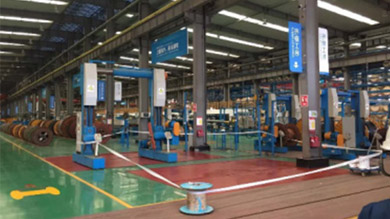Dis . 25, 2024 11:48 Back to list
Durable Cast Iron Valves for Reliable Industrial Applications and Enhanced Performance
The Advantages and Applications of Cast Iron Valves
Cast iron is a versatile material known for its superior strength, durability, and resistance to corrosion, making it an ideal choice for various industrial applications. Among the many products manufactured from cast iron, valves hold a prominent position, particularly in sectors that involve the management of fluids and gases. This article explores the benefits, applications, and considerations associated with cast iron valves.
Understanding Cast Iron Valves
A cast iron valve is a type of valve made primarily from cast iron material. These valves are designed to control the flow of fluids or gases within a pipeline by either starting, stopping, or throttling the fluid/dynamics. Common types of cast iron valves include gate valves, globe valves, check valves, and ball valves, each serving different functions but sharing the inherent properties of cast iron.
Advantages of Cast Iron Valves
1. Durability and Longevity Cast iron valves exhibit exceptional durability and can withstand high pressures and temperatures. Their robust nature allows them to resist wear and tear, making them suitable for heavy-duty applications requiring consistent performance over time.
2. Corrosion Resistance The structure of cast iron is such that it can resist corrosion from various chemicals, making it suitable for water, sewage, and chemical treatment plants. This resistance extends the lifespan of the valve, ensuring lower maintenance costs and reduced downtime.
3. Cost-Effectiveness Compared to other materials such as stainless steel or bronze, cast iron valves are generally more affordable. This cost advantage makes them a popular choice for industries wanting to balance quality and budget.
4. Good Thermal Conductivity Cast iron has excellent thermal conduction properties, which can be advantageous in applications involving heat transfer, such as steam systems.
5. Versatility Cast iron valves can be used in a wide range of applications, from domestic plumbing systems to complex industrial settings. They can handle various types of fluids, including water, oil, and even some gases.
Applications of Cast Iron Valves
Cast iron valves are widely used in a variety of industries
. Here are some common applicationscast iron valve

1. Waterworks and Sewage Treatment Cast iron valves are extensively used in municipal water systems and sewage treatment facilities. Their resistance to corrosion and ability to handle high-pressure fluids make them ideal for controlling water flow.
2. Oil and Gas Industry In oil and gas operations, the reliable sealing properties of cast iron valves are crucial for managing the flow of hydrocarbons at high pressures. They are often used in pipelines, refineries, and storage facilities.
3. Chemical Processing Cast iron valves are utilized in chemical plants, where they must withstand aggressive substances. Their durability ensures minimal leakage and enhances safety protocols within these facilities.
4. Heating Systems In steam heating applications, cast iron valves control the flow of steam and hot water, offering good thermal conductivity while standing up to the high-pressure environment.
5. Mining Operations The mining industry benefits from cast iron valves, especially in controlling the flow of water and other fluids used in various processes.
Considerations When Using Cast Iron Valves
While cast iron valves offer many advantages, there are considerations to keep in mind
- Weight Cast iron is relatively heavy, which can pose challenges in installation and support, especially in smaller systems or portable applications.
- Brittleness Though strong, cast iron can be brittle and is prone to cracking under extreme conditions. Care must be taken to avoid impact or excessive stress.
- Rust Formation While they resist corrosion, improper maintenance can lead to the formation of rust, particularly in wet environments. Regular inspections and appropriate coatings can mitigate this risk.
Conclusion
Cast iron valves are an essential component in many industrial applications. Their durability, affordability, and corrosion resistance make them an attractive option for businesses seeking reliable solutions in fluid management. As industries continue to evolve, the ability of cast iron valves to adapt to various conditions ensures their relevance and utility for years to come. Whether in waterworks, oil and gas, or chemical processing, cast iron valves remain a steadfast choice for reliable flow control.
Share